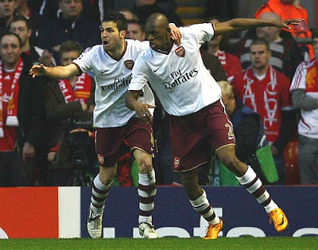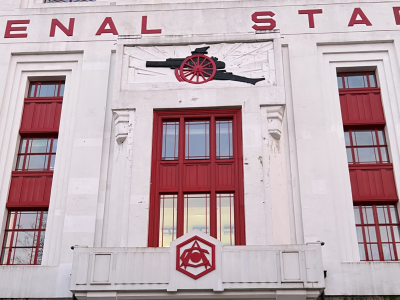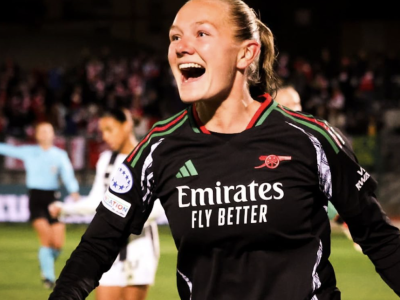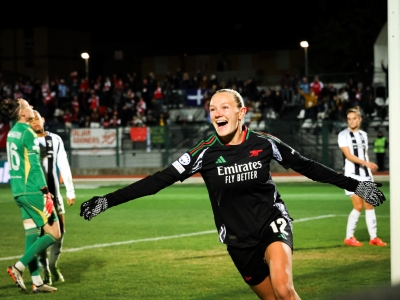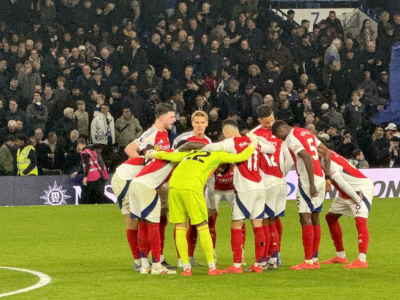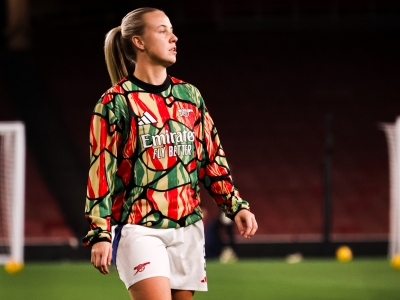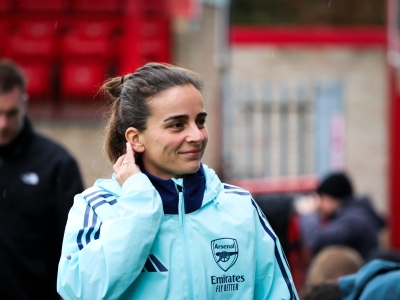By December 1983, three and a half moribund years on from May 1980, Terry Neill’s reign at Arsenal was finally put out of its misery. His demise coincided with the rise of a 36 year old nouveau riche upstart by the name of David Dein, who had joined the board that very same year after investing £330,000 into the club. In 1982, Arsenal’s chairman for the previous twenty years, Denis Hill-Wood, had passed away. His son Peter took over the reins; however as a Chairman of Hambro’s Bank and largely not seeing Arsenal or the Football industry itself as a financial investment in any way (famously referring to Dein’s investment as ‘dead money’), Hill-Wood junior was not so inclined to devote as much time to Arsenal as his father had done and thus into the void stepped David Dein, which spelt the end for Neill’s tenure.
Dein had liaised with the ‘Arsenal Action Group’ led by Arsenal fan Alan Esparza, who had petitioned to change the club’s management through dissatisfaction at Neill’s achievements over his seven and a half years at the club. Neill was sacked on 16th December 1983, however the mediocrity continued for another two and a half years under his successor Don Howe. One of football’s great mysteries is how Don Howe, lauded as being the main reason behind both the ’71 double and late 70s triple cup finalists, turned out to be so underwhelming as a manager. By March 1986, despite a run of eight wins out of eleven and being just eight points off the top of the table with two games in hand (four points above West Ham who were in the title race that season until the last Saturday), Arsenal were courting Terry Venables to replace Don Howe behind his back. This lead to Howe’s resignation on Good Friday of 1986 and there followed a run of just three wins out of Arsenal’s last eleven games under caretaker manager Steve Burtenshaw.
After George Graham’s appointment in May 1986, there followed the club’s longest ever run of continued success, that stretched over nearly two decades with a brief interval that had followed Graham’s sacking for financial misdemeanours in 1995, as well as Bruce Rioch’s short reign the following season. Ironically Dein nearly fell foul of Arsenal Action Group’s Alan Esparza himself over the appointment of Rioch’s successor. In a Daily Mirror article in 1996 that sensationally warned of ‘riots’ over Wenger’s appointment, Esparaza warned that ‘If Wenger comes; there will be hell to pay at next week's shareholders' meeting’.
The Dein-Wenger alliance however proved to be a fruitful partnership over the next eleven years, until it was dissolved with Dein’s resignation from the Arsenal board in April 2007 due to irreconcilable differences over Dein’s support for a Stan Kroenke-led take over. In June of that year, the club’s all-time leading goal scorer and Captain Thierry Henry was also to follow Dein through the exit door, signing for Barcelona.
Despite this, Arsenal’s first season minus David Dein and Thierry Henry was to start with a degree of optimism having beaten Inter 2-1 in the final of the inaugural Emirates Cup, as well as winning the prestigious Amsterdam Tournament a week later after defeating Lazio 2-1 and hosts Ajax 1-0. Seven days later the Premiership season had kicked off with an error by Jens Lehmann against Fulham after just 90 seconds. It took Arsenal 84 minutes to break down Fulham but saw two goals in the last six minutes from Robin Van Persie and Alex Hleb as Arsenal ran out 2-1 winners. Another Jens Lehmann howler the following week in a 1-1 encounter at Blackburn had meant that the German keeper was to lose his place to Manuel Almunia, of which he was never to fully win back.
Arsenal however sensationally took the top spot in mid-September with an excellent 3-1 win over Tottenham at White Hart Lane which sent Spurs heading toward the relegation zone and heaped extra pressure on the soon to be sacked Martin Jol. Four days later brought a 3-0 win over reigning UEFA Cup holders Sevilla, managed by soon to be Spurs manager Juande Ramos. An impressive run of eight wins in their first nine league games saw Arsenal two points clear of United at the top with a game in hand, there was also a 7-0 thumping of Slavia Prague in the Champions League. The acid test however was to come at the end of October with back to back games against Liverpool and Man Utd. At Anfield, a Cesc Fabregas equaliser in the 80th minute had cancelled out Steven Gerrard’s earlier free kick, in an encounter that ended 1-1. The following week back in North London saw Arsenal twice pull back United in a 2-2 draw.
Arsenal’s unbeaten run stretched to 15 games and even led some to wonder if the ‘Invincibles’ feat could be repeated, however the run eventually ended in a 1-2 defeat by Middlesbrough at the Riverside. Arsenal however were to pick themselves up again for an impressive run of four wins over the next five games, including a William Gallas winner in a 1-0 victory over his old club Chelsea, a 2-1 win over Tottenham just before Christmas and a two-goal Eduardo inspired comeback to win 4-1 at Everton. In between that run, Eduardo had also bagged two goals against Blackburn in the League Cup Quarter Final at Ewood Park to put Arsenal through after extra time and another in the FA Cup 3rd Round 2-0 win away at Burnley, meaning that Arsenal were challenging for honours on all four domestic and European fronts by early January. However, the wheels were very soon to come falling off.
In the January transfer window Arsenal had reportedly taken an interest in Jonathan Woodgate, as well as rumours of an attempt by Wenger to bring Nicolas Anelka back to Arsenal. Neither materialised and Wenger decided against any further additions to his squad that January. On the field the cracks were also beginning to appear, firstly with Tottenham recording their first win over the Arsenal in eight and a half years in the League Cup Semi Final, in a 1-5 defeat at the Lane (2-6 on aggregate). Insult was also added to injury with the on-pitch bust up between Emmanuel Adebayor and Niklas Bendtner. Arsenal had also exited the FA Cup in the 5th Round in fairly lame fashion, losing 0-4 to Man Utd at Old Trafford.
In the league, where they continued to field a full strength first eleven, Arsenal remained strong with four consecutive wins over Fulham, Newcastle, Man City and Blackburn - also scoring eleven goals in the process. When Arsenal took to the field against Birmingham City at lunchtime on February 23rd they were five points clear of Man Utd with the chance to stretch their lead to eight. Within two and a half minutes Arsenal had lost Eduardo to an horrific leg and ankle break from a tackle by Martin Taylor that would put him out of action until the following January and see Taylor red carded for his actions. Arsenal, who as a result were dazed for much of that first half, went in at half time 0-1 down, however two goals from Theo Walcott put Arsenal into a 2-1 lead which they held until injury time. A defensive error from Gael Clichy in turn led to conceding a penalty, of which James McFadden converted to equalise.
An opportunity to pull away was lost, however more symbolic was Captain William Gallas’s post-match breakdown on the pitch at Full-Time and possibly an indication of mental fragility within the Arsenal ranks at the time. From thereafter Arsenal were unable to take full points in six of the next seven league fixtures, a run which included a 1-2 defeat against Chelsea at Stamford Bridge on Easter Sunday with two goals from Didier Drogba after leading 1-0. Arsenal’s only win in this period came from pulling back a two goal deficit to beat Bolton 3-2 at the Reebok. The only other bright spot in March of 2008 came at the San Siro at the start of the month, where Arsenal sensationally eliminated the European Champions AC Milan in a 2-0 win, securing their passage to the last eight of the Champions League.
In the Quarter Finals Arsenal were joined by three other English sides, one of whom - Liverpool - they were to be drawn against. They were to play the Scousers thrice inside a week, the first leg and league fixture – both at home, were to end 1-1. In the away leg at Anfield Arsenal took the lead through Abou Diaby, however were to rue defensive errors, firstly Phillipe Senderos in leaving Sammy Hyypia unmarked for Liverpool’s equaliser. Fernando Torres gave Liverpool the lead in the second half; however Arsenal nudged ahead on away goals seven minutes from time after Theo Walcott’s run from his own half had provided an assist for Emmanuel Adebayor who duly finished. Advantage however was to be surrendered within seconds of kicking off, Kolo Toure bringing down Ryan Babbel inside the box. The resulting penalty was converted by Steven Gerrard, with Ryan Babbel adding another late on to run out 4-2 winners on the night.
Arsenal’s only remaining interest in honours by mid-April was the slender hope of winning the title. Five days on from Anfield came United at Old Trafford. Emmanuel Adebayor gave Arsenal the lead in the opening minutes of the second half; again however the lead was squandered through conceding a penalty which Cristiano Ronaldo duly put away, followed by Owen Hargreaves giving United the lead, scoring direct from a free kick. Arsenal picked up full points from their remaining four games, which included a 6-2 defeat of rock bottom and relegated Derby County, however the title was to again return north to Old Trafford. On the plus point, Arsenal finished four points off of the top of the table, losing just three games all season in the league – the only other Arsenal sides to lose less games in a season were the unbeaten invincibles of 2003/04 and the near invincibles of 1990/91.
Despite this however, Arsenal were to lose key players during the close season which severely undermined any potential foundations to build on for the following season. Mathieu Flamini refused to sign a new contract and left to join AC Milan on a free transfer before the season had even ended. This was however Flamini’s first season as a core first team regular after spending the preceding three years on the periphery of the first team. Though he was the club’s most improved player by a country mile that season, what was worse had been the prior disposal of Lassana Diarra in the January transfer window to Harry Redknapp’s FA Cup winning Portsmouth, who would have been an able replacement.
There was also the estrangement of ‘invincible’ season veteran Gilberto Silva, who had been side-lined all season and thus was moved on to Panathinaikos over the summer. At 32 years of age Gilberto would still have been able to do a job in the premiership, however Wenger opted to place (or rather misplace) faith in his fellow young countryman Denilson, who as it turned out was woefully ill-equipped to turn out for a side hoping to challenge for honours. Alex Hleb also left to join Barcelona for £11.8 Million that summer, as well as the unsettling of Emmanuel Adebayor by AC Milan’s overtures which eventually led to his leaving Arsenal twelve months later, albeit to Man City instead.
It’s also interesting to note of those that were first team regulars in 2007/08, only Bacary Sagna and Tomas Rosicky still remain at the club - such has been the change in personnel that has occurred in the five years since. Of those who were on the fringes of the first team in 2007/08 and have stayed with Arsenal to the present day, only Theo Walcott can be said to actually offer anything tangible on a fairly regular basis. And, as everyone in the football world is so quick to point out as often as possible, nothing has been won by Arsenal since the collapse of our title challenge in 2007/08 (by which point we were already three seasons trophy-less), despite a Champions League Semi Final a year later and couple of un-sustained title challenges in 2009/10 and 2010/11.
Is the 2007/08 season to the Wenger era what 1972/73 was for Bertie Mee, or 1979/80 was to Terry Neill’s reign? Well, 2007/08 started with almost every member of the Arsenal faithful to a man worried that Wenger would follow David Dein and Thierry Henry through the exit door. After the Chelsea defeat on March 23rd 2008, this site’s forum was the very first place I had heard anyone anywhere dare to wholeheartedly say the words ‘Sack Wenger Now’ – although certainly not by any means the last time such words were uttered. And no doubt quite a few words are still to be written on the subject before that particular saga is finally put to bed once and for all.
*Follow me on Twitter@robert_exley

